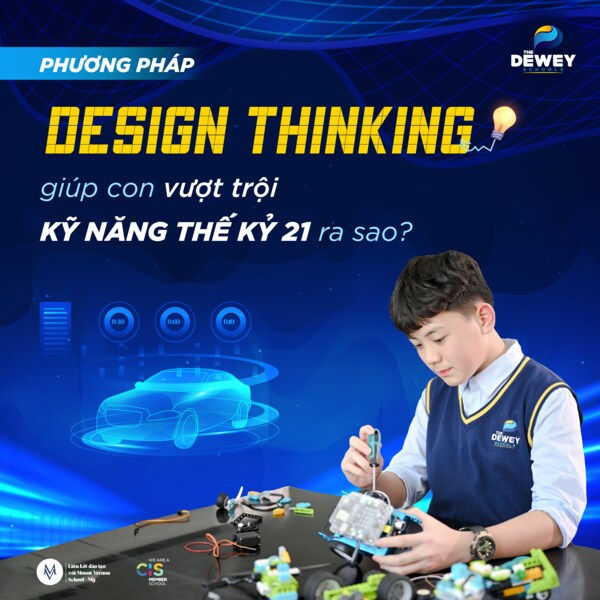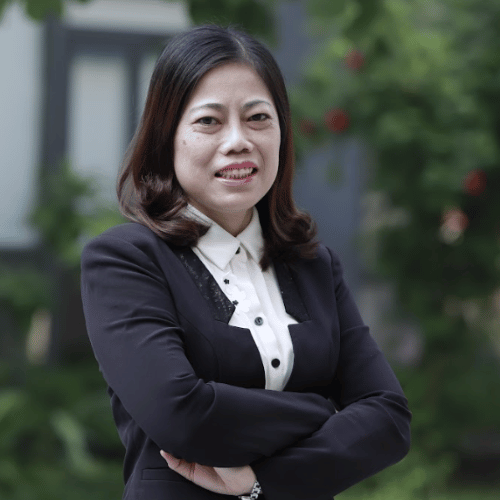Design Thinking is applied by many global enterprises such as Apple, Google, Pepsi, Nike, as well as leading universities worldwide including Stanford, Harvard, and MIT. In Vietnam, The Dewey Schools Hai Phong is among the pioneering schools applying this method in teaching, helping students develop 21st-century skills.

Problem-Solving Ability
The Design Thinking process teaches Students to approach problems systematically and logically, understand root causes to propose effective solutions. Each class session assigns tasks for students to answer questions and find ways to solve problems. Through testing various ideas and collecting feedback data, students develop their own knowledge and improve solutions.
Critical Thinking
“Why? How? Is there a better way?” These are questions Students frequently ask, delving into research and analyzing information from multiple sources to find answers. They learn to make persuasive arguments to explain the reasons for choosing a solution or a specific direction.
Creative Thinking
Design Thinking stimulates Students’ curiosity and multidimensional thinking to generate new ideas, creatively solve problems, and fearlessly experiment with different solutions. Instead of passively listening to lectures, Dewey Students have their own Makerspace to “tinker” with 3D printing, laser cutting, CNC sculpting to create and model products they design themselves using advanced technology equipment.
Effective Collaboration And Communication
Through real-world projects, students not only learn to work independently but also enhance teamwork and communication skills. Each member needs to use clear language to share their ideas within the group, while actively listening to constructive feedback, and collaborating to achieve common goals.
Confidence And Readiness For Change
A distinctive feature of Design Thinking is the iterative process of trial and error until the best outcome is achieved. Throughout this process, Students may encounter numerous difficulties and challenges, then iterate to improve. They learn how to overcome failures and confidently adapt to changes. This helps them develop flexibility and readiness to cope with the rapid changes of the 21st century.
Countless projects applying Design Thinking at The Dewey Schools involve hands-on learning and practical application: creating water surface waste collection devices, developing board games to raise awareness of climate change, building employment support centers for the elderly… These initiatives not only nurture outstanding soft skills in the younger generation but also cultivate an innovative spirit to navigate and influence positive change in the community through highly applicable solutions.


























